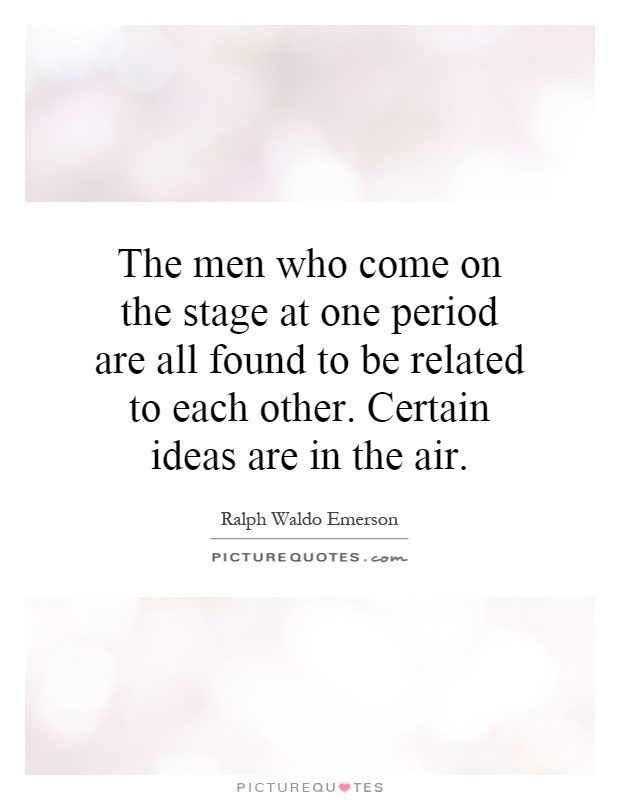The men who come on the stage at one period are all found to be related to each other. Certain ideas are in the air

The men who come on the stage at one period are all found to be related to each other. Certain ideas are in the air
Ralph Waldo Emerson, a prominent figure in the American transcendentalist movement of the 19th century, believed in the interconnectedness of all things. In his essay "Self-Reliance," Emerson famously wrote, "The men who come on the stage at one period are all found to be related to each other. Certain ideas are in the air." This statement reflects Emerson's belief that individuals are not isolated beings, but rather part of a larger, interconnected web of existence.Emerson's idea that the men who come on the stage at one period are related to each other can be interpreted in several ways. On one level, he may be referring to the fact that individuals are influenced by the ideas and beliefs of their time. In other words, the men who come on the stage at a particular moment in history are shaped by the cultural, social, and intellectual currents of that time. This interconnectedness can be seen in the way that certain ideas and values are passed down from generation to generation, shaping the beliefs and actions of individuals within a society.
Furthermore, Emerson's statement can also be understood in a more metaphysical sense. He believed in the unity of all things, and saw the interconnectedness of individuals as a reflection of the interconnectedness of the universe as a whole. In this view, the men who come on the stage at one period are related to each other not just through shared ideas and beliefs, but through a deeper, more fundamental connection that transcends time and space.
Emerson's belief in the interconnectedness of all things was a central tenet of transcendentalism, a philosophical and literary movement that emerged in the United States in the early 19th century. Transcendentalists like Emerson believed in the inherent goodness of humanity, the importance of self-reliance, and the interconnectedness of all living beings. They rejected the materialism and conformity of mainstream society, and sought to cultivate a deeper connection to nature, the self, and the divine.












 Friendship Quotes
Friendship Quotes Love Quotes
Love Quotes Life Quotes
Life Quotes Funny Quotes
Funny Quotes Motivational Quotes
Motivational Quotes Inspirational Quotes
Inspirational Quotes